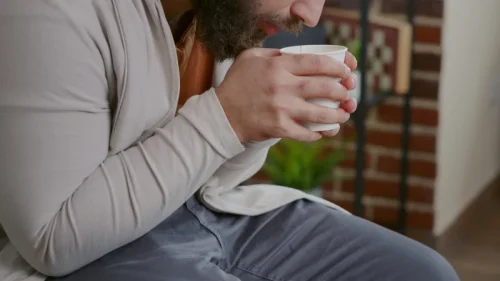
They refused to accept the diagnosis and focused on hope and religion. As an adult, Tabatha has accumulated an impressive coping toolbox that includes compartmentalization, humor, and travel. She has fought back after surgeries to enjoy hobbies such as paddle boarding and yoga.
Healthy Problem-Focused Coping Skills
- To do this, individuals should set realistic goals and establish a schedule that allows them to accomplish their tasks without feeling overwhelmed.
- This is especially important for people who tend to be highly stressed, including nurses, doctors, teachers, and caretakers.
- These strategies are great to use when we have little ability to control what happens.
- Mindfulness exercises, such as mindfulness meditation, may also protect against work stress.
- Chronic stress can increase your risk for other mental health concerns, such as depression and anxiety.
- There isn’t a one-size-fits-all option when it comes to stress relief, however.
Even if changing the trigger isn’t possible, a shift in perspective may help mitigate stress. For example, if a friend is pushing your buttons, stepping back and adjusting your expectations may allow you to keep this close bond. Stress is an unavoidable part of life, but that doesn’t mean you should ignore it. Too much untreated stress can cause potentially serious physical and mental health problems. Inhaling essential oils may help calm the mind in times of stress, anxiety, and insomnia.
Activities, Prompts, and Worksheets

Ultimately, we hope these strategies will benefit both you and your clients and lead to better stress management, as improved stress management will lead to happier, healthier lifestyles. But if stress is a daily occurrence, isn’t letting up, and is causing symptoms of anxiety or depression, it may be time to consider talking with a mental health professional. Finding and practicing healthy ways to cope with stress can help you healthy ways of coping with stress reduce its impact on your daily life and the chances it affects you in the long run. A number of helpful techniques, such as deep breathing and meditation, are fast-acting tools that you can do anywhere, anytime. Mindfulness meditation can be easily performed in the office or a quiet workplace. Make a conscious effort to spend less time in front of a screen — television, tablet, computer and phone — and more time relaxing.
- Furthermore, screen time may negatively affect sleep, which may also lead to increased stress levels.
- Initially, it was designed as a generic tool to measure perceived stress in a smoking cessation study.
- Creating boundaries — especially with people who add to your stress levels — is a healthy way to protect your well-being.
- Sometimes stress can cause your mind to spiral and lead you down an unnecessary rabbit hole of negative thoughts.
- Exercise releases endorphins, which can improve your mood and reduce stress.
- But you might find going for a walk when you’re angry causes you to think more about why you’re mad—and it fuels your angry feelings.
Another resource is the Harvard Special Health Report Stress Management (/sc).
Routine exercise can help improve the way your body uses oxygen and helps you cope with stressful situations. You may be able to feel the difference as you stick to your routine. This exercise provides specific coping skills to use and encourages participants to identify which stressful situations the skills can be applied to. Some healthy coping strategies include self-soothing, various self-relaxing or distracting activities, and support through social interactions or professional help.


It may stem from a situation or an event that adds pressure, like when we have lots to do, or think about. Stress can creep up on us when we least expect it and leave a lasting impact. Use our advice to help notice stress and what you can do when it appears.
